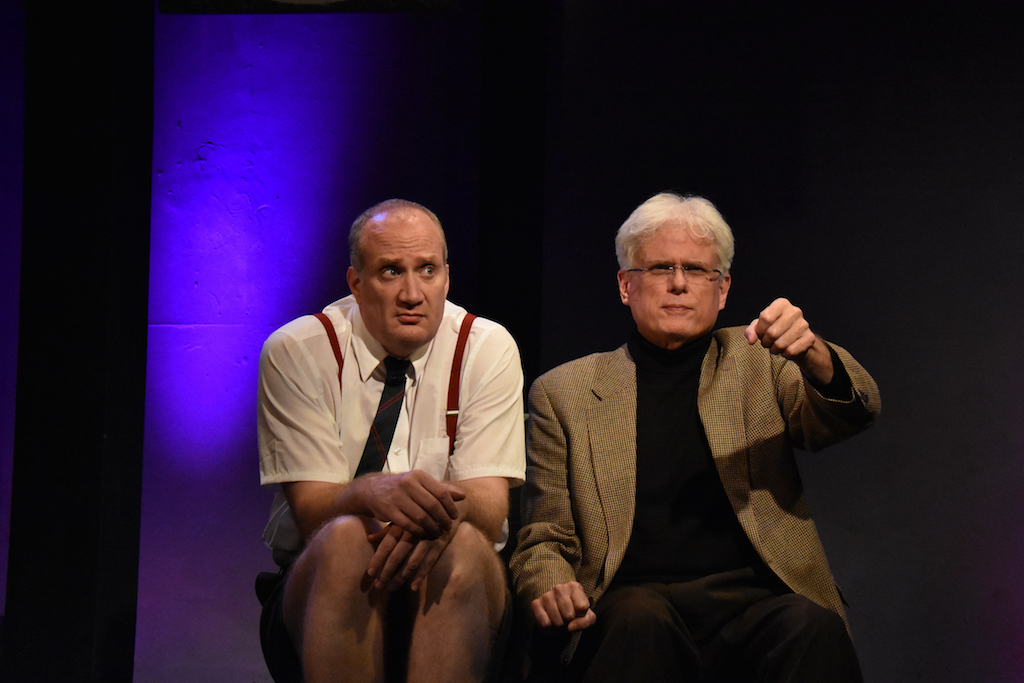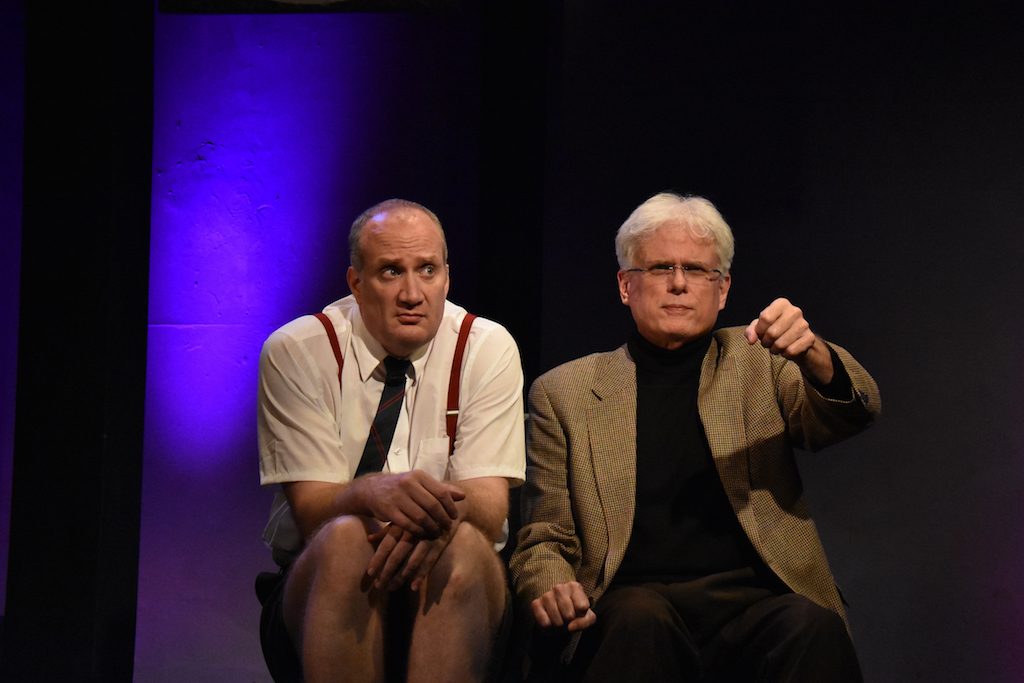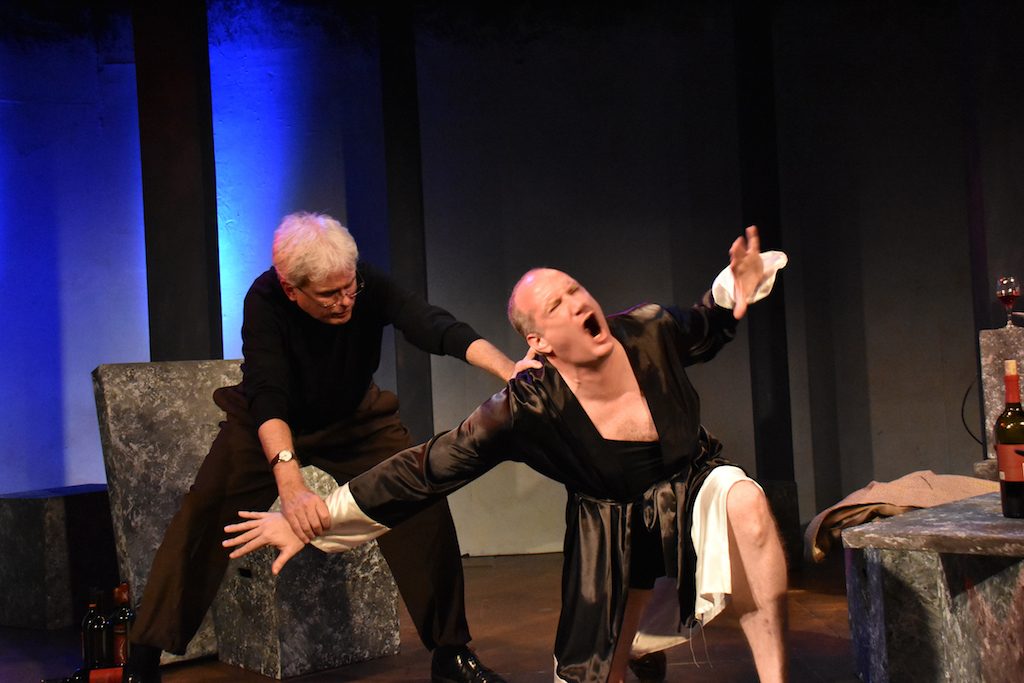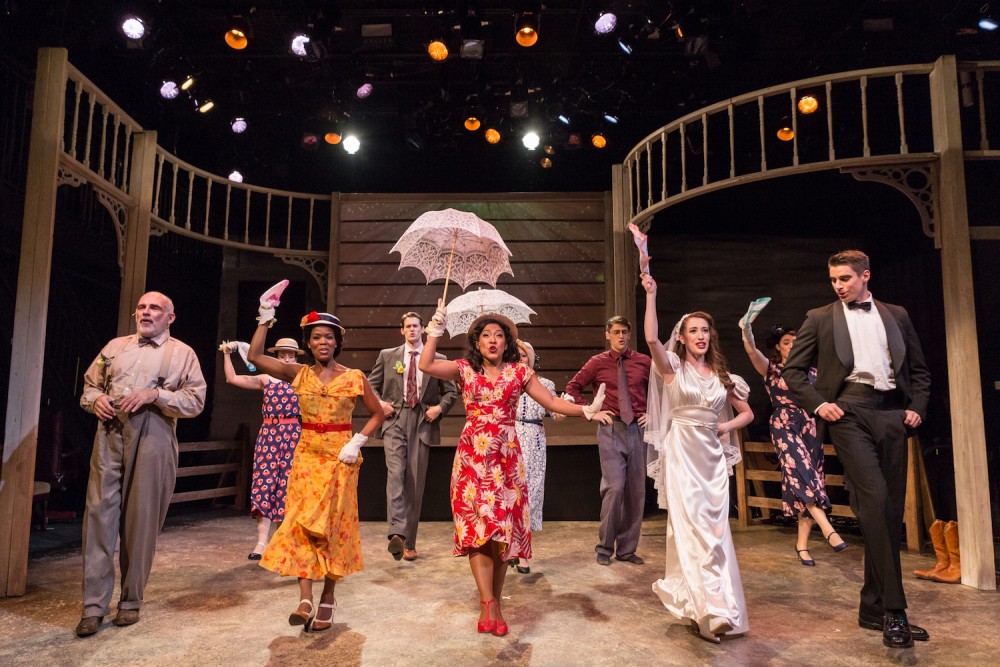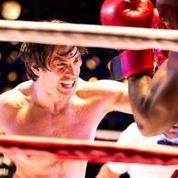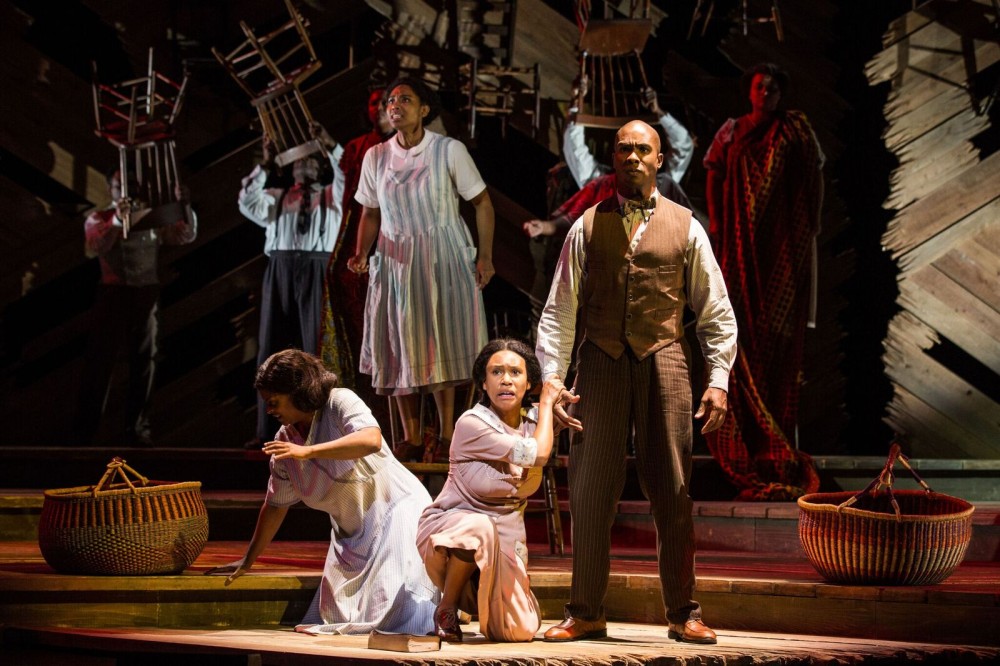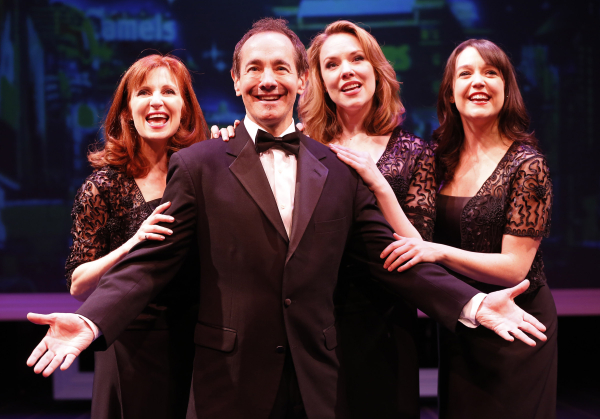. . . or My Dinner with André the Giant
by Samuel L. Leiter
It’s hard to conceive of any more unlikely pairing for a play about two familiar, real-life figures than Samuel Beckett, the distinguished Irish playwright, poet, and novelist of existential despair, and André the Giant, a.k.a. André Roussimoff (among other names), the acromegaly-afflicted behemoth who at one point may have been the world’s highest-paid wrestler. But Sam and Dédé, as André liked to be called, actually knew each other when the latter, already huge at 12, lived near Beckett’s home in a rural French town, and the boy’s farmer father helped the future Nobel Prize-writer work on his cottage.
Gino DiIorio’s engrossing play, Sam & Dede, or My Dinner with André the Giant—visiting New York in the production that premiered at San Francisco’s Custom Made Theatre—imagines the men having a longtime relationship, marked by several meetings across a span of many years, beginning in 1958. That’s when Sam (Dave Sikula) agrees to a request from André’s (Brendan Averett) dad to drive the kid to school because he’s too self-conscious about his size to take the school bus.
DiIorio isn’t the first to see the potential in dramatizing this little-known friendship. There are also Sam and André plays by Ron Burch (Samuel Beckett Drives André the Giant to School) and Rory Jobst (Samuel Beckett, André the Giant, and the Crickets), not to mention a graphic novel on the subject. It’s known that the chief topic of the pair’s conversation when they met was cricket, which all three plays include.
DiIorio goes further by imagining that the men stayed in touch as each grew in fame. He seeks out the similarities between their aspirations and achievements by having Beckett show interest in André’s profession and the wrestler do likewise regarding the art of writing.
André, as in life, is as a man of gargantuan appetites for food and drink, and also someone notably good-natured. But few would imagine him, with his lack of education, to be capable of the kinds of clear-eyed insights—simply expressed, of course—he shows into Beckett’s work, including the novel Molloy, with its 80-page second paragraph. Beckett, on the other hand, comes off as a pleasant chap, friendly to a fault, insecure about his genius, and unaware of what he’s doing when he writes or what anything he’s written “means.”
The 90-minute one-act, which often alludes to Beckett’s most famous plays, moves the action to 1963, where André has paid a visit to a Paris production of Beckett’s Endgame; fast-forwards to a hotel room in 1975, when André is a world-famous wrestler; and concludes by placing Sam and André in urns, like those in Beckett’s Play, with Sam’s tiny urn next to André’s towering one. In this coda-like scene—spoken in rapid-fire, barely audible, sometimes overlapping, monotones—the men recall the past like characters ensnared in a Beckett play; it’s daring but overlong, failing to communicate much of its content. Why casually throw it away for the sake of a theatrical jeu?
The 1975 scene is especially appealing because André gives the playwright a lesson in wrestling dramaturgy, in which the good guy is “the face” and the bad guy “the heel.” The lesson isn’t purely intellectual, though, because the mammoth athlete uses the wine-soaked occasion to demonstrate some actual moves (thanks to fight choreographer Jon Bailey) for his frightened friend.
Of course, the first thing some will ask is where the production found actors who could reasonably resemble not only the physiognomy and height of the wrestler, but Beckett’s well-known, lined and chiseled, somber face. The answer: it didn’t.
Sikula’s snow-white hair crowns an all-American, boyish face, and he’s far shorter than the notably rangy Beckett. (André erroneously refers to him as “small and slight.”) His lesser size, however, helps to contrast him with the much larger, but far from abnormal Averett, whose broad, laughing, Falstaffian, persona helps us suspend just as much of our disbelief as the play requires. And you’ll be listening to unaccented American English, although the characters undoubtedly would have spoken French.
Both Sikula and Averett provide engaging, often funny, performances that allow us to accept them as two charmingly lost souls, men dominated by their exceptionalism and consequent inability to fit in. Leah S. Abrams’s staging—using Eric Ladue’s abstract set of movable, different-sized blocks, efficiently lit by Maxx Kurzunski—keeps things moving but wastes too much time on tiresome, actor-performed scene shifts. They pin the play down much as André would one of his rivals.
Photos: Jay Yamada
Sam & Dede, or My Dinner with André the Giant
59E59 Theaters/Theater C
59 E. 59th St., NYC
Through April 1


